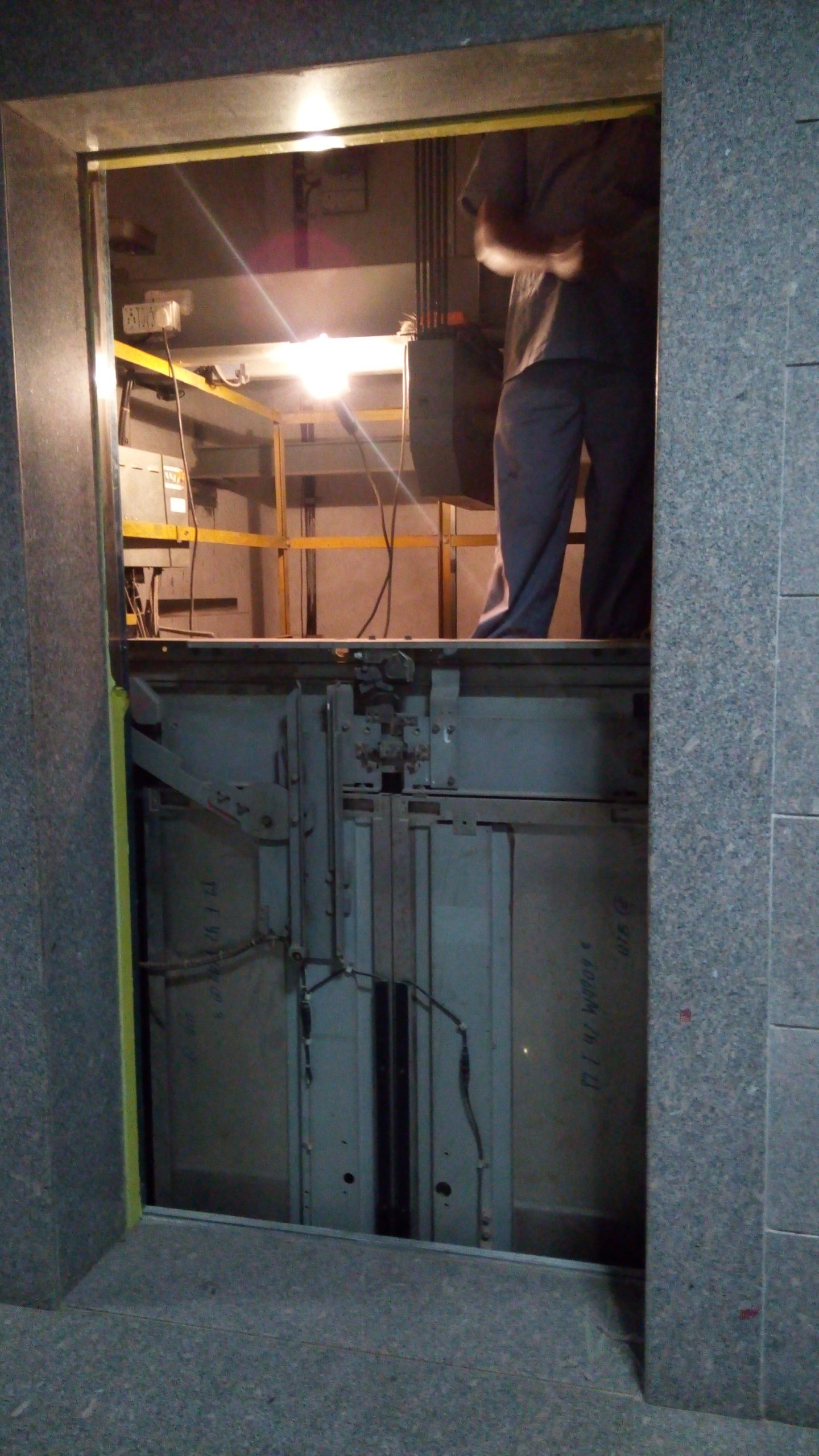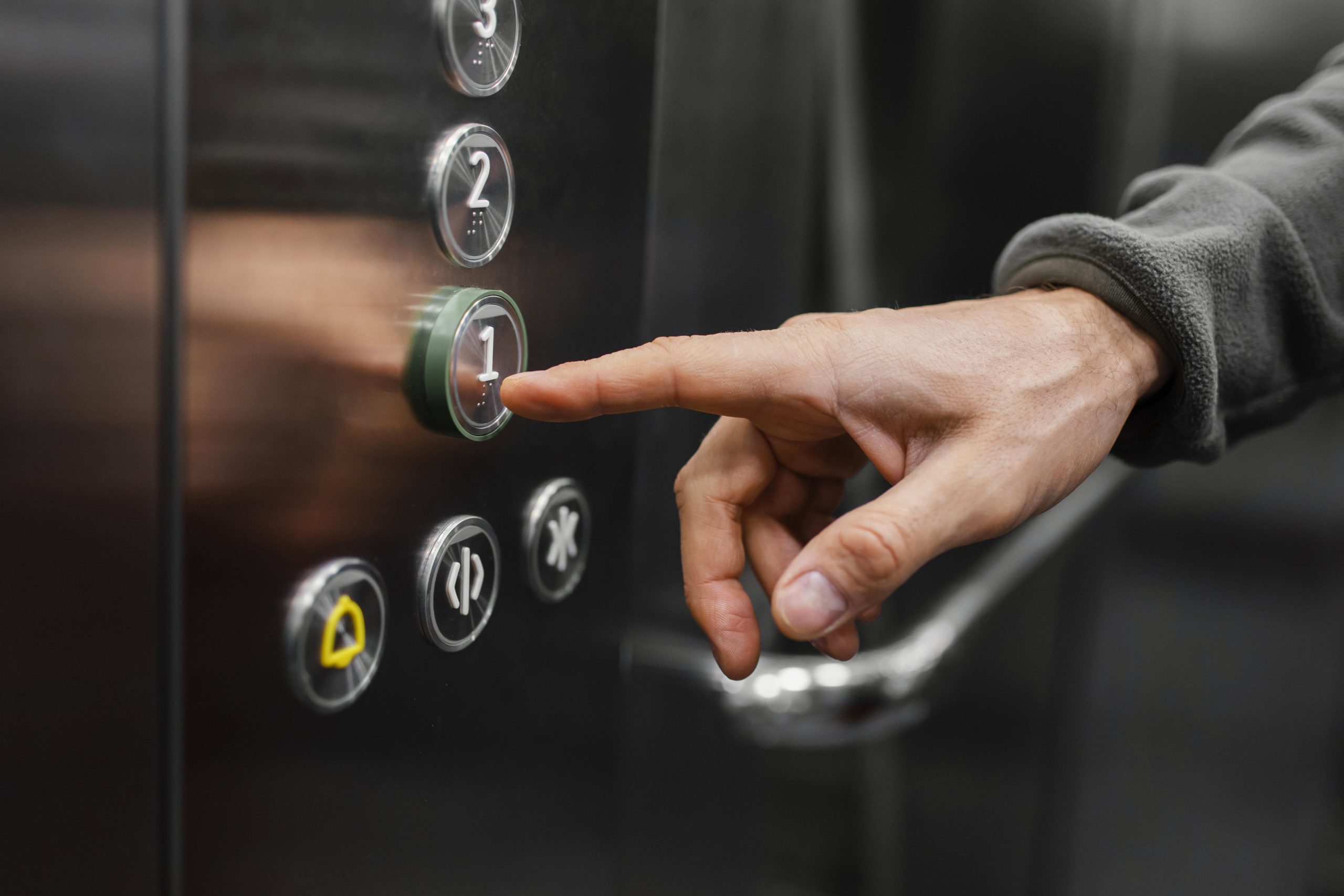Lift Maintenance

19+
Years
Experience

 Faq
Faq
Expert Lift Maintenance Services
Ensure your lift operates smoothly and safely with our expert lift maintenance services. Our experienced technicians provide reliable maintenance solutions, including routine inspections, repairs, and adjustments, to keep your lift in top condition. We adhere to the highest industry standards and safety regulations, offering peace of mind with every service.
Regular maintenance not only enhances performance but also extends the lifespan of your lift and prevents costly breakdowns. Trust us to keep your lift running efficiently and reliably. Contact us today to schedule your maintenance service and experience top-quality care!
1. How often should lift maintenance be done?
Lift maintenance should be done regularly, typically every 1 month, according to SS550:2020 Clause 7.2.3.2. Some high-traffic lifts in commercial buildings may need more frequent maintenance to ensure safety and smooth operation.
However, with the recent implementation of BCA Remote Monitoring and Diagnostics (RM&D) for Lifts in Singapore ( Remote Monitoring & Diagnostics for Lifts in Singapore | Building and Construction Authority (BCA) ), it is possible to extend the maintenance interval to 3 months. UPleev works with the best in the industry and is able to provide these options to our customers who wish to adopt these latest practices.
2. What does a typical lift maintenance service include?
The scope of work for lift maintenance is stated in Annex C of SS550:2020. However, UPleev maintenance regime is more stringent than stated to provide a reliable lift for our clients.
A standard lift maintenance service involves:
• Inspecting mechanical and electrical components
• Lubricating moving parts
• Checking the safety mechanisms (doors, brakes, emergency systems)
• Inspecting cables and pulleys for wear and tear
• Testing the control systems and sensors
• Cleaning and removing debris that could affect operation. This comprehensive check helps ensure your lift runs safely and efficiently.
3. How long does lift maintenance take?
Routine maintenance usually takes 1 to 2 hours. The duration can vary depending on the lift's complexity, the number of floors it serves, and any issues that require attention. Thorough inspections may take longer if repairs or part replacements are needed.
4. What are the signs that a lift needs maintenance?
Several signs indicate that a lift needs immediate maintenance, such as:
• Unusual noises (grinding or screeching)
• Jerky or slow movement
• Doors not opening or closing properly
• Sudden stops or frequent breakdowns
• Odd odors, especially burning smells If you notice any of these, schedule a maintenance check immediately to avoid potential safety hazards.
5. Can maintenance reduce the risk of lift breakdowns?
Yes, regular maintenance significantly reduces the risk of breakdowns. Proactive inspections and servicing allow technicians to identify and address small issues before they escalate into costly or dangerous problems. Maintenance also helps extend the life of your lift system.
6. How do I know if my lift meets safety standards?
To ensure your lift meets safety standards, a licensed technician should regularly inspect and certify it. After each service, the technician should provide a report or certification confirming that the lift is safe to operate.
7. What certifications should a lift maintenance company have?
A reputable lift maintenance company should have the following certifications:
• Companies providing Lift Maintenance should be registered with BCA RW02. They can be found here.
Regulatory | Building and Construction Authority (BCA)
8. What happens if a lift fails during operation?
If a lift fails during operation, emergency systems should kick in. Most lifts are equipped with backup power to lower the lift safely or open the doors to allow passengers to exit. The lift will automatically resume normal operation once the power comes back online.
9. How much does routine lift maintenance cost?
Routine lift maintenance costs depend on the type of lift, building size, and maintenance frequency. On average, basic monthly services range from $250 to $500 per lift. Larger, more complex lifts or those in high-traffic buildings may incur higher costs due to increased wear and tear or specialized parts.
There are many different types of Maintenance Contract. From Comprehensive Maintenance to Non-comprehensive maintenance, UPleev provides a holistic solution catered for your needs.
10. What are the penalties for skipping scheduled maintenance?
Skipping scheduled maintenance can lead to several penalties, including:
• Fines from BCA for non-compliance
• Voiding of warranties from lift manufacturers
• Increased repair costs due to unchecked wear and tear
• Potential legal liability in the case of accidents Routine maintenance is critical not only for compliance but for ensuring passenger safety and reducing long-term costs.
11. How do I choose the right lift maintenance provider?
When selecting a lift maintenance provider, consider the following factors:
• Certifications and Licenses: Ensure they have the proper regulatory certifications and a strong safety record.
• Experience: Look for a provider with experience in maintaining the specific type of lift you have.
• Reputation: Read reviews or ask for recommendations from other building managers.
• Response Time: Choose a company that offers quick response times for emergency repairs.
• Comprehensive Services: Ensure the provider offers both routine maintenance and emergency services to cover all your lift’s needs.
12. How can lift maintenance improve performance?
Regular lift maintenance improves performance by:
• Keeping components well-lubricated and in good working condition
• Preventing unexpected malfunctions that could cause downtime
• Ensuring that the lift operates smoothly, reducing wear on parts
• Enhancing safety and reliability for passengers overall, a well-maintained lift will run more efficiently, consume less energy, and have fewer breakdowns.
13. How do I handle lift repairs vs. regular maintenance?
• Regular Maintenance: Focuses on preventing issues by addressing potential problems before they arise.
• Lift Repairs: Are needed when a part fails or the lift breaks down. Immediate action is required to restore functionality. Routine maintenance reduces the likelihood of costly repairs. However, when repairs are necessary, they should be handled promptly by certified technicians to avoid prolonged downtime.
14. Can lift maintenance be scheduled outside of peak hours?
Yes, UPleev offers flexible scheduling to minimize disruption. Maintenance can be performed during off-peak hours, such as evenings or weekends, ensuring that tenants or employees experience minimal inconvenience.
15. What spare parts are typically replaced during maintenance?
Commonly replaced spare parts during lift maintenance include:
• Door rollers and sensors
• Cables and pulleys
• Lubricants
• Wear and Tear Parts
16. How do lift maintenance contracts work?
A lift maintenance contract typically covers:
• Regular inspections and servicing
• Parts replacement and adjustments
• Emergency repairs and calls
• Record keeping and compliance reporting
Contracts are often tailored to the building’s needs and can be adjusted for frequency and specific services. Reviewing contract details ensures that it covers both routine and emergency needs.
17. What is the lifespan of a lift with proper maintenance?
With proper maintenance, most lifts can last up 30 years or more. The lifespan depends on the type of lift, frequency of use, and the quality of maintenance. Regular servicing ensures that parts are replaced as needed, preventing early failure and extending the lift’s operational life. HDB lifts typically replaces the lifts at its 28 years.
Regular lift maintenance is crucial for ensuring smooth operation, preventing breakdowns, and meeting safety standards. Whether you’re in need of routine checks or emergency repairs, a professional maintenance service will help ensure the longevity and safety of your lift system.
